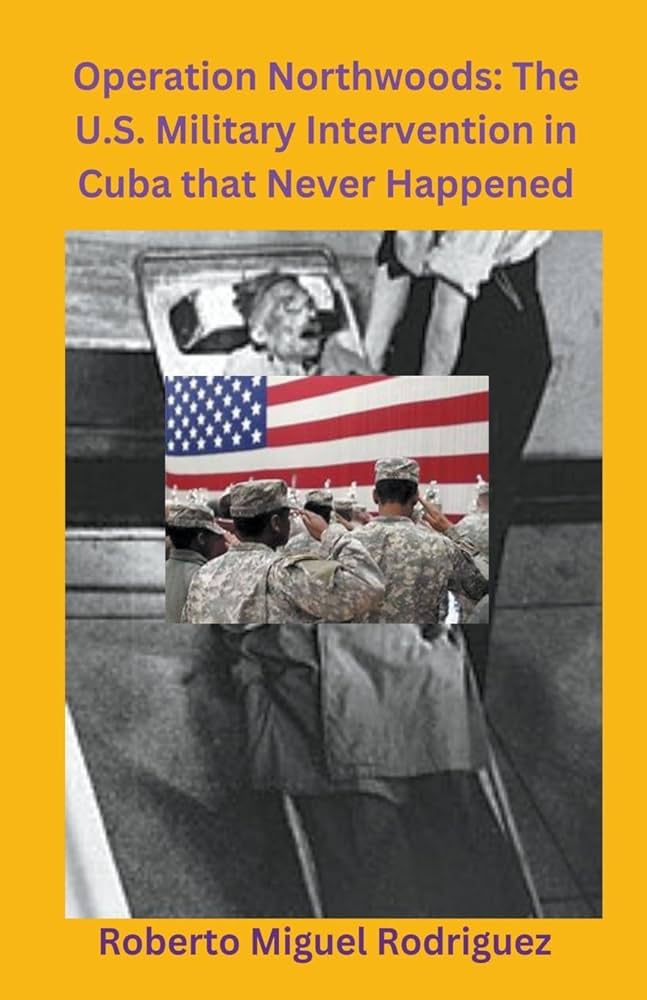Operation Northwoods stands out as a shocking chapter in Cold War history. The anxiety surrounding U.S.-Cuba relations deepened after Fidel Castro rose to power in 1959. With the Cold War intensifying, America viewed Cuba’s alliance with the Soviet Union as a looming threat. This dynamic set the stage for extreme measures, including a plan concocted by the U.S. military that sought to incite war.
Background and Context
The early 1960s were rife with geopolitical tension. American officials were increasingly concerned about the proximity of Cuba, a nation they considered to be under radical communist influence. Three years after Castro’s revolution, the situation had escalated. America feared that Cuba’s close ties with the Soviet Union would spread communist ideologies to the Western Hemisphere. The U.S. military was eager to intervene and protect its interests, adopting a policy of containment against the spread of communism.
This historical context is crucial. It illustrates how events of the past continue to resonate today, prompting discussions about government actions and public perceptions. People often underestimate the fear and desire for control that can shape military operations, making it important to understand why the U.S. took the measures it did.

Source: Wikipedia
Proposed Operations
Under Operation Northwoods, military leaders proposed drastic measures such as hijackings, bombings, and other false flag operations. The aim was to fabricate evidence of aggression from the Cuban government. For instance, the plan included staging fake terrorist attacks on U.S. soil or orchestrating the hijacking of planes. These actions were intended to whip up public sentiment for war by making it appear that Cuba was hostile.
The creativity behind these proposals is alarming. They reveal a desperate mindset among military officials who believed they had no choice but to manipulate public perception. In this light, the moral implications of such strategies raise questions. Was it justifiable to endanger innocent lives to achieve political objectives? As we examine these plans, one cannot help but feel a sense of unease.

Source: Amazon
Declassification and Public Knowledge
The unsettling nature of Operation Northwoods remained hidden under a veil of secrecy for decades. It wasn’t until 1997 that the documents were declassified, leading to public outrage. Many people were shocked to realize that their government had contemplated such drastic measures to justify military intervention. Historian reactions were also significant, as they pointed out the ethical implications and the chilling disregard for human life.
This revelation reshaped public perceptions of government transparency and military ethics. The fact that such proposals could even be considered highlights the extent to which trust can be compromised. It encourages citizens to remain vigilant about their government’s actions and intentions.

Source: Walmart
Legal and Ethical Implications
Operation Northwoods raises serious legal and ethical concerns. The proposed actions could have violated both domestic and international laws. Deceiving the public and putting civilians in harm’s way poses fundamental moral questions. It’s essential for citizens to reflect on these themes of government deception and manipulation, considering how they resonate with contemporary events.
In light of recent debates about governmental trust, Operation Northwoods serves as a cautionary tale. It underscores the importance of holding governments accountable for their actions. Citizens must advocate for transparency and ensure that ethical considerations take precedence over tactical gains.
Legacy and Impact on Conspiracy Theories
The legacy of Operation Northwoods endures as a prominent reference point for discussions on government conspiracy theories. It illustrates the potential for military overreach in the name of national security. Public skepticism about government narratives has only grown since these revelations.
This chapter in history continues to shape American public perception of government actions. Drawing connections to contemporary conspiracy theories adds depth to understanding how the past informs the present. As citizens, it’s crucial to engage critically with history, drawing lessons that promote accountability in governance.
Conclusion
In summary, Operation Northwoods is a significant episode in understanding Cold War anxieties. The plans outlined in this operation remind us of the lengths to which governments may go to justify military action. It’s vital for readers to draw lessons from this chapter, emphasizing the importance of civic awareness and accountability in today’s society.
Public interest in historical events like Operation Northwoods can help us better understand contemporary issues in governance. Reflecting on the past allows society to examine the relationship between authority and accountability, fostering a more informed citizenry.

Source: Amazon
References:
Operation Northwoods – Wikipedia – link
Operation Northwoods: The U.S. Military Intervention in Cuba that Never Happened – link
Operation Northwoods: The U.S. Military Intervention in Cuba that Never Happened – Walmart – link
Operation Northwoods: The History of the Controversial Government – link
US False Flag Operation Against Americans – Operation Northwoods – link
Categories: Cold War History, Government Conspiracy Theories, International Relations, Military Ethics, Psychological Warfare, War History
Tags: Cold War History, Government Conspiracy Theories, International Relations, Military Ethics, Psychological Warfare
Country of Origin: Cuba, United States, World
Topic: Operation Northwoods and U.S. Military Ethics

